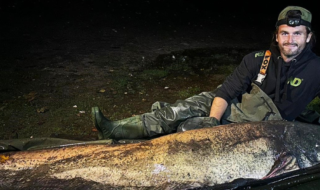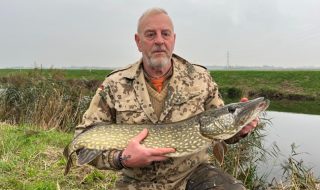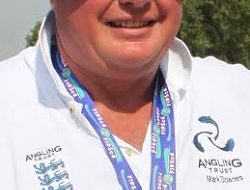Angling and conservation groups have welcomed the announcement this week that 27 new Marine Conservation Zones have been designated by Defra around the coast of England, covering in total an area approximately three times the size of Wiltshire, but have highlighted the need for far more zones if the long term decline in sea life is to be reversed.
The Marine Conservation Zones (MCZs) will protect marine habitats around the coast including sea grass and oyster beds while restricting any damaging activities to ensure that the features of the MCZ are protected.
The sites designated are 27 of the 31 put forward by the Government earlier this year out of the original 127 that were agreed by the four regional projects over a lengthy and expensive four year stakeholder consultation process.
The 27 designated sites are:
1. The Canyons
2. South-West Deeps (West)
3. East of Haig Fras
4. Poole Rocks
5. South Dorset
6. Chesil Beach and Stennis Ledges
7. Torbay
8. Skerries Bank and surrounds
9. Tamar Estuary Sites
10. Whitsand and Looe Bay
11. Upper Fowey and Pont Pill
12. The Manacles
13. Isle of Scilly Sites
14. Padstow Bay and surrounds
15. Lundy
16. Fylde Offshore
17. Cumbria Coast
18. Aln Estuary
19. Swallow Sand
20. Rock Unique
21. Blackwater, Crouch, Roach and Colne Estuaries
22. Medway Estuary
23. Thanet Coast
24. Folkestone Pomerania
25. Beachy Head West
26. Kingmere
27. Pagham Harbour
Agreement on how the new MCZs are managed now needs to be reached by the Inshore Fishery and Conservation Authorities and other regulators. Restrictions will differ from site to site depending on what features the site intends to protect and activities will only be regulated if they cause damage to the habitats that are being conserved in the MCZ. It is likely that there will be some indirect benefits to fisheries where commercial trawling is restricted.
In addition, two new tranches of MCZs have been announced by the Fisheries Minister, George Eustice, the first of which is due to be consulted on in 2015.
The Angling Trust’s Marine Campaigns Manager, David Mitchell said, “Now we know which sites have been designated, sea anglers really need to make contact with their local Inshore Fishery and Conservation Authorities who will be deciding on how the new zones are managed. Activities will only be restricted if they are damaging the features of the MCZ being protected and sea anglers need to be involved in discussions surrounding the management of the MCZs to make sure that sea angling is not unnecessarily restricted or unfairly labelled as a damaging activity.”
Mark Lloyd, Chief Executive of the Angling Trust said, “We have supported the concept of marine conservation zones and protecting the marine environment since the process began. While the designation of these 27 sites is welcome, it remains disappointing that 100 of the original recommended sites didn’t make it. It’s even more disappointing that more wasn’t done to protect fish species and stocks through the MCZ process – something that many sea anglers have found difficult to understand, and it has never been made clear what restrictions might be imposed on sea angling as a result of this process. How the MCZs are now managed and enforced now needs to be decided. Time will tell whether the IFCAs have the resources to do this effectively. They already struggle to control illegal netting.”
To find out how to contact your local IFCA visit http://www.marinemanagement.org.uk/about/ifcas/
For more information about the new marine Conservation zones visit https://www.gov.uk/government/collections/marine-conservation-zone-2013-designations





